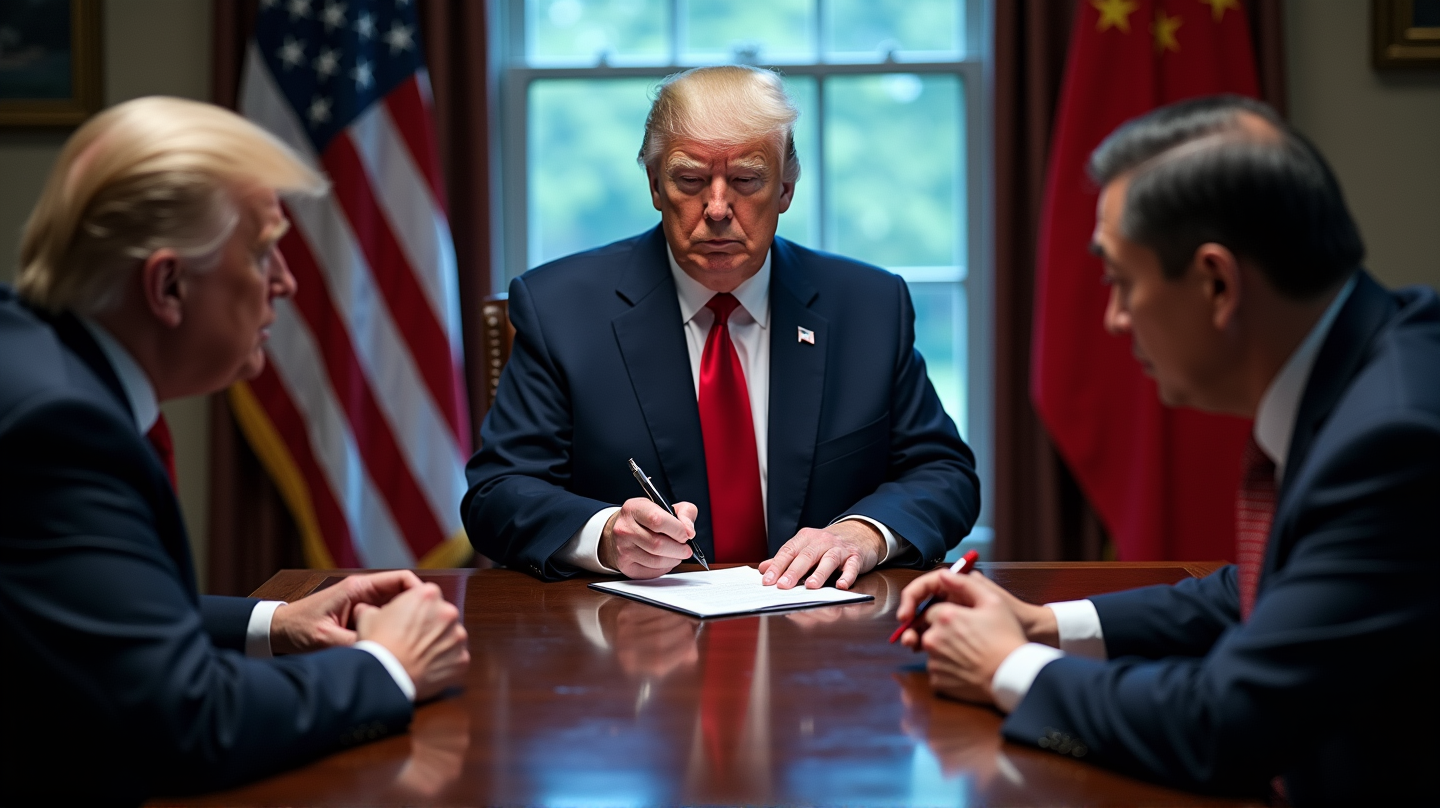In an unexpected twist of events, President Donald Trump has taken center stage once again by signing an executive order to extend TikTok’s operations in the United States for another 75 days. This move comes amidst layered negotiations intended to transition TikTok’s ownership to American hands, allowing ByteDance to maintain a minority stake. However, the path to this resolution hasn’t been free from obstacles.
The Complexity of Tariff Tensions
Originally, the Trump administration was on the brink of finalizing a deal with Chinese company ByteDance, which would spin TikTok into a US-based entity. However, the rug was pulled when Beijing put a halt to the proceedings. This abrupt pause was catalyzed by Trump’s sudden imposition of widespread tariffs, including those affecting China. According to an insider, ByteDance conveyed that negotiations on trade had to proceed before any approval could be considered.
Congressional Pressure and National Security Concerns
Congress had set strict deadlines, pushing for ByteDance to divest TikTok by January 19, citing national security risks. Facing imminent prohibition, Trump opted to sidestep the legislative timeline, extending the deadline unilaterally. Despite clear congressional mandates, he has endeavored to negotiate a satisfactory deal to maintain TikTok’s presence in the US and is now tasked with securing both national and Chinese agreements on the terms.
The Role of Investors and the Uncertain Road Ahead
The prospective deal has involved intense negotiations, often spearheaded by Vice President JD Vance with an array of US and international stakeholders. Although the executive order implies that progress is being made, the intricate challenge of reaching an agreement, particularly under the constraints of Chinese law, remains unresolved. Within this complicated landscape, existing and potential investors express varied reactions, pushing for clarity amid the ongoing negotiations.
Public Opinion and Market Disruption
Public sentiment towards TikTok in the US reflects profound divisions. Pew Research Center’s latest findings reveal that the support for a ban has dwindled to one-third of Americans from 50% a year earlier, with considerable concerns about data security. Content creators like Terrell Wade, grappling with the uncertainty, have expanded to alternative platforms, adopting a cautious yet hopeful stance as the timeline extends once more.
Legal Challenges and Executive Authority
Despite seemingly skating on thin legal ice, Trump’s authority to hold off on enforcing the ban lacks formidable legal challenges due to the complexities of establishing standing in federal courts. This legal terrain, accentuated by the operational ambiguity of ByteDance’s algorithm, keeps the national security debate alive, with industry experts like Chris Pierson voicing persistent concerns about data control remaining under foreign influence.
As the 75-day extension unfolds, the pressure mounts for both sides to collaborate towards a resolution. Suffused with intrigue and strategy, the unfolding narrative penetrates deeper than a media spectacle, shadowing broader US-China relations. The world watches intently, awaiting the final act of this geopolitical drama. According to Times Colonist, these negotiations shape not just TikTok’s future but possibly the broader tale of digital sovereignty.
